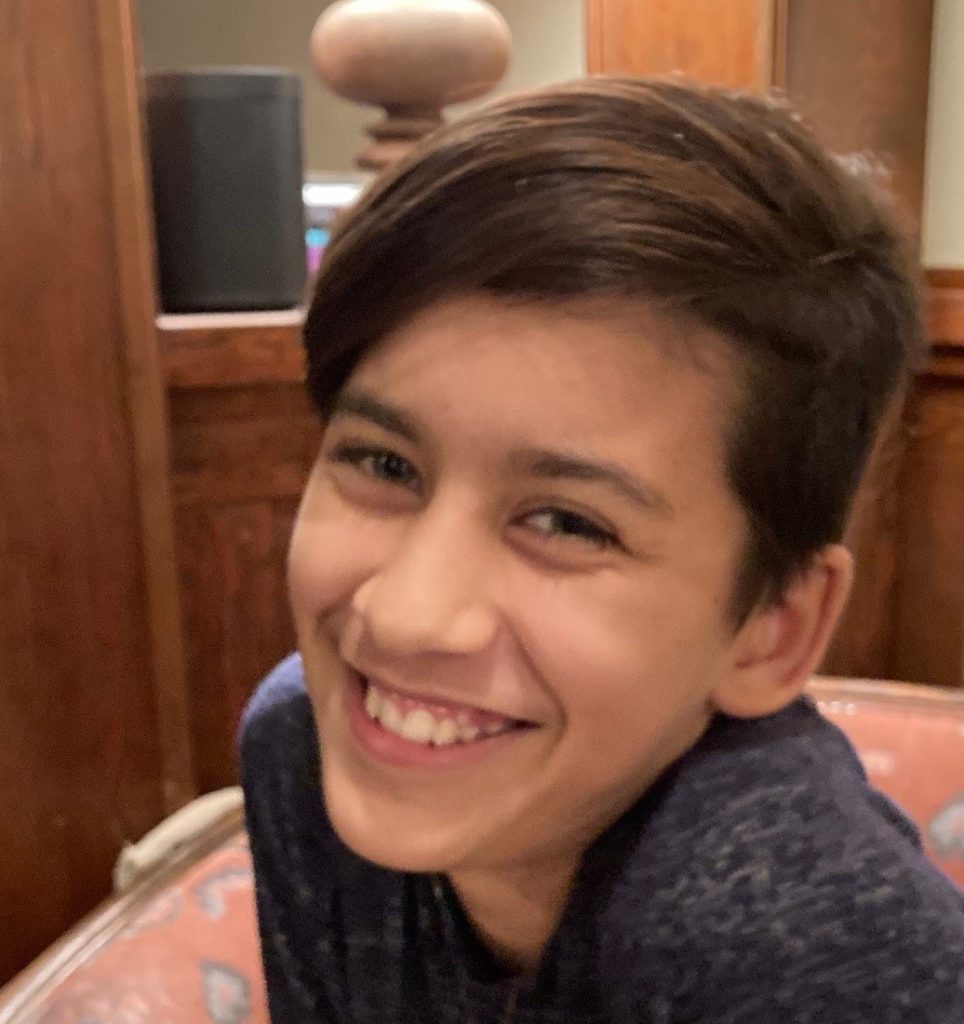Idaho Students Awarded in Statewide Civics Contest
Various Authors
Published January 2022
Attorneys for Civic Education (ACE) is proud to announce that three Idaho students and their schools were selected for prizes in ACEs first Civics Contest. Student essays explored Constitutional rights and correlating responsibilities. The three winning entries were: Audra Bunn, Wendell Middle School; Adison Buzzell, Idaho Home Learning Academy; and Dylan Hughes, North Junior High School.
The ACE Civics Contest is open to Idaho middle school students. In its inaugural year, the contest was financially sponsored by the Government and Public Sector Lawyers Section of the Idaho State Bar, whose financial contribution allowed ACE to award prizes to the top three entries along with an honorarium to the schools. The Idaho Supreme Court and the University of Idaho College of Law also provided extensive support.
Entries were critiqued by a panel of judges that included: Idaho Supreme Court Justice Gregory Moeller; Donald Burnett, retired Acting President of the University of Idaho, former Dean of the College of Law, and former Idaho Court of Appeals Judge; Pandi Elison-Chang, Ph.D., Social Studies Teacher at Preston High School, Secondary Social Studies/Adjunct Professor Idaho State University; and Melissa Davlin, Producer/Host at Idaho Public Television.
Justice Moeller said of the entries, “It was a delight to read so many inspiring essays and, frankly, reassuring to see that the rising generation has such a deep love for and understanding of the U.S. Constitution.”
Don Burnett noted regarding the essay topics, “The students identified an impressive array of constitutional provisions, including all of the first five amendments as well as the 8th, 13th, 14th, 15th, 19th, and 16th Amendments. Students also showed thoughtful insight into how individual rights come with personal responsibilities.”
ACE would like to thank our judges and sponsors for their support of the Civics Contest. We appreciate their dedication to advancing civic education in our state.
The three winning entries are published in the following two pages.
The United States Constitution Protects Numerous Individual Rights
Audra Bunn
The United States Constitution protects many individual rights that have impacted our country. Three rights that can be found in the Constitution include women’s right to vote, freedom of speech, and freedom of religion. These rights are all important and all come with great responsibility that people need to be willing to follow.
Women’s right to vote was very important because it gave women an opportunity to vote for their country. Women’s suffrage rights are found in the 19th Amendment of the Constitution of the United States. In 1920, this amendment was passed in the House of Representatives, the Senate and ratified in the states (nps.gov). However, this didn’t give voting rights to all women immediately. Women of color, lower income women, and women of crime were all excluded. Native American women couldn’t vote until 1924, when they were recognized as U.S citizens (nps.gov). The obligation of women voters is to know and understand the candidates. It is also important to not be affected by public opinion. This means that you can’t always assume what is being said is true. As voters, women need to think about what is going to benefit everyone, and not just them personally.
Freedom of speech allows us to speak our minds freely about something important. This right was adopted in the Constitution on December 15, 1791, as part of the First Amendment and the Bill of Rights (guardianlv.com). Freedom of speech means that whatever you write, or say, the government can’t jail or fine you, except in exceptional circumstances (guardianlv.com). With having the right of freedom of speech, you want to be responsible with what you say because it represents what you stand for. Make sure what you say does not hurt others with hateful remarks, accusations, and untrue statements. When this is done, it does not show freedom of speech, but instead shows immaturity or foolish behavior.
Freedom of religion, like freedom of speech, was first adopted into the Constitution on December 15, 1791, as a part of the First Amendment (“U.S Constitution”). This gives people the right to speak, act, and live their religious beliefs peacefully and publicly. It also protects their ability to be themselves at work, class, or social activities (heritage.org). People can live in peace not having to be worried about being punished by the government (heritage.org). Another responsibility is not making fun of or bullying others because of their religion. So, when talking about your religion or someone else’s, try not to judge them for it because everyone is different.
In conclusion, The United States Constitution protects many individual rights that have made changes toward how we live today. Three rights that can be found in the Constitution include women’s right to vote, freedom of speech, and freedom of religion. With all these rights, there are great responsibilities as well. It is also very important to remember the way we act can represent us as human beings.

Audra Bunn is an eighth grade honor student and plays volleyball, basketball, and softball. She enjoys 4-H and is involved in the dairy market heifer program.
America’s Instruction Manual
Adison Buzzell
The Constitution of the United States is one of the most important documents ever written in American history. Our forefathers wrote this to act as an instruction manual for our government leaders and ensure a way to protect the rights of citizens. It also serves to limit government power.
Freedom of expression is one of our protected rights as American citizens. It is found in the First Amendment of the Bill of Rights. Expression includes our right to free speech, peaceful assembly, petitioning the government, and freedom of religion. This means that Americans can express their thoughts, opinions, and beliefs freely, without fear of persecution. Each citizen also has the individual responsibility to exercise these rights appropriately. America was founded on the belief that people should have the right to choose their own religion, not the government. As citizens, we must protect our rights by petitioning our leaders, or by peaceful protest, when we feel those rights have been violated, and to hold our officials accountable. The First Amendment is an important factor in keeping our voices and individuality.
The right to bear arms is another freedom protected by the Constitution. It is the Second Amendment found in the Bill of Rights. This right means a citizen can own firearms. Our founding fathers knew that in order for people to remain free, they must have means to form a militia, should they need to, against enemies foreign and domestic. This includes a tyrannical government. Leaders are held more accountable when they fear the people. History has shown that the birth of tyranny in a country always begins with disarming the people. We learned this from Nazi, Germany and other communist regimes. We would never want this in America. This freedom to bear arms carries much individual responsibility. Citizens must be good stewards of this right and learn how to use firearms safely. People must also use good judgement, and be able to discern if and when a militia is truly necessary.
A citizen’s right to vote is an essential freedom. This right is represented in Amendments 15, 19, 24, and 26. The Constitution states that legal citizens cannot be denied the right to vote based on gender, race, skin color, previous servitude, age (over 18), or tax status. Voting is how leaders of our country are selected at all levels of government. I believe it is the responsibility and civic duty of each citizen to carefully examine candidates for election and choose representatives who will uphold and protect our Constitutional freedoms and liberties. Choosing not to vote, is forfeiting a citizen’s voice in government.
The American people have the right to life, liberty, and the pursuit of happiness. All generations have the responsibility to understand their Constitutional rights and learn how to protect them. We must teach these truths if our country is to remain a free, sovereign, and independent nation. I know I will be one who always stands up for freedom and the Constitution.

Adison Buzzell loves horses and hopes to have her own one day. She’s studying horse science in hopes to become an equine therapist one day. She enjoys life in general! Aside from working with horses, in her free time she can be found writing, baking, crafting, playing sports, or enjoying family time. Adison is an all-American U.S. girl who loves God, country, and freedom! She would like to use her prize money to invest in a business of her own someday!
Voting Rights
Dylan Hughes
Voting, a vital part of citizenship in the United States, is how we elect who we believe has our best interests in mind. There are three amendments to the Constitution that establish the right to vote for all adults regardless of race, sex, and age. These amendments can, however, leave gaps that allow for unfairness when people are exercising their right to vote.
Passed in 1870, the right to vote regardless of “color, race, or previous condition of servitude” [1] can be found in Section 1 of the 15th Amendment. My Chinese ancestors wouldn’t have been able to vote until this amendment was passed. This right allowed for people of any race or skin color to vote, as well as the formerly enslaved. Also, even if you were a slave in the past, you could vote. While this amendment made all men eligible to vote, it left open the opportunity for unfairness. This included poll taxes and literacy tests [2]. I believe the individual responsibility that comes with this right is to make voting accessible to everyone, including people of color. 19.5% of Black people are below the poverty line, with Hispanics at 17%, and Asians at 8.1% [3], which could make it harder to commute a long distance to a polling place. After all, if you are allowed to vote but can’t, what good does this amendment really do?
It was another 50 years before the 19th Amendment was ratified, giving women the right to vote. At the time, in 1920, women were not seen as equals to men. Many women followed their husbands’ lead and let them make the decisions. As a female, my responsibility when I can vote will be to not let other people tell me who I should vote for. By voting for who I believe is the best choice, I am not placing myself below men like women did in the past.
51 years after this, in 1971, the 26th Amendment was ratified. Found in Section 1 of the 26th Amendment is the right to vote at 18 years of age. Before this time, men were drafted in wars, but they were seen as too irresponsible to vote. When I turn eighteen, my responsibility will be to stay educated on current politics so I know who I want to vote for. If I am not informed about the issues that affect me, how will I know which candidate wants to help with these issues?
In conclusion, it took over 100 years for these three amendments to be ratified, but to this day, unfairness persists. As a female of Chinese descent who will turn 18 in a few years, these amendments affect me in many ways. To realize the full potential of these rights, my generation needs to take on the individual responsibilities of increasing access to vote, having confidence in your vote, and making an educated vote.

Dylan Hughes is a seventh-grader at North Junior High where she enjoys cross country, reading, and writing. She is also a vegetarian who loves animals and baking.
References
[1] The US Constitution, Section 1 of the 15th Amendment, passed by Congress February 26, 1869. Ratified February 3, 1870.
[2]https://www.senate.gov/artandhistory/history/common/generic/CivilWarAme ndments.htm
[3] https://www.statista.com/statistics/200476/us-poverty-rate-by-ethnic-group/

